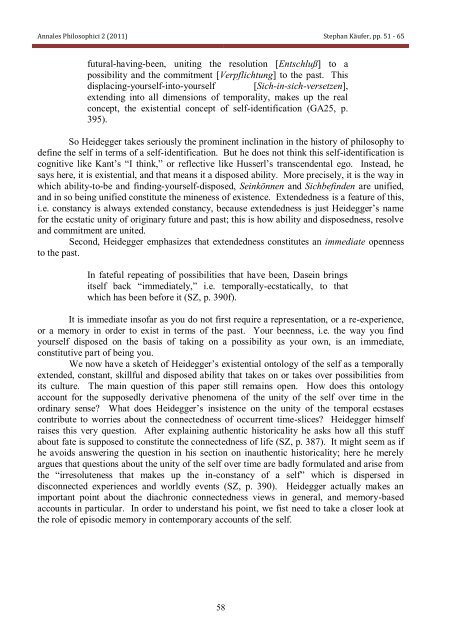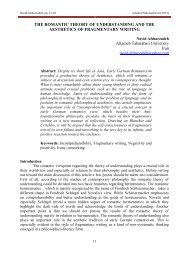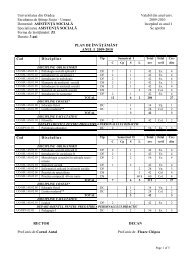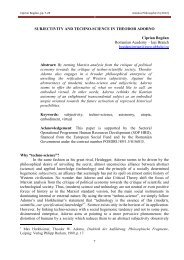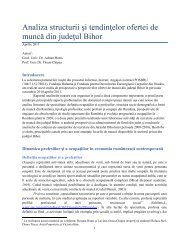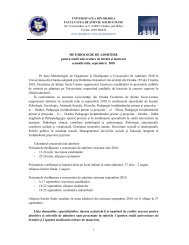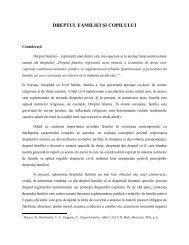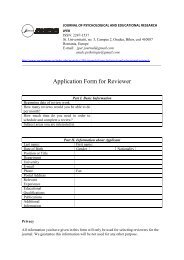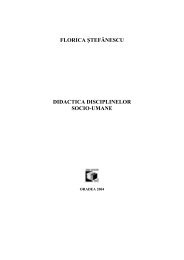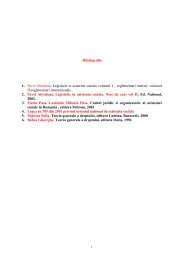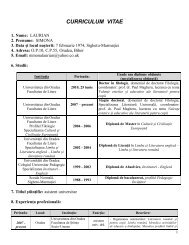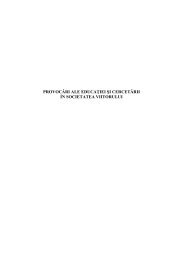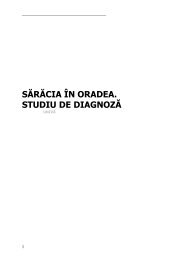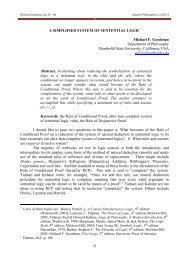Stephan Käufer: HEIDEGGER ON MINENESS AND MEMORY
Stephan Käufer: HEIDEGGER ON MINENESS AND MEMORY
Stephan Käufer: HEIDEGGER ON MINENESS AND MEMORY
You also want an ePaper? Increase the reach of your titles
YUMPU automatically turns print PDFs into web optimized ePapers that Google loves.
Annales Philosophici 2 (2011) <strong>Stephan</strong> <strong>Käufer</strong>, pp. 51 - 65<br />
futural-having-been, uniting the resolution [Entschluß] to a<br />
possibility and the commitment [Verpflichtung] to the past. This<br />
displacing-yourself-into-yourself [Sich-in-sich-versetzen],<br />
extending into all dimensions of temporality, makes up the real<br />
concept, the existential concept of self-identification (GA25, p.<br />
395).<br />
So Heidegger takes seriously the prominent inclination in the history of philosophy to<br />
define the self in terms of a self-identification. But he does not think this self-identification is<br />
cognitive like Kant‘s ―I think,‖ or reflective like Husserl‘s transcendental ego. Instead, he<br />
says here, it is existential, and that means it a disposed ability. More precisely, it is the way in<br />
which ability-to-be and finding-yourself-disposed, Seinkönnen and Sichbefinden are unified,<br />
and in so being unified constitute the mineness of existence. Extendedness is a feature of this,<br />
i.e. constancy is always extended constancy, because extendedness is just Heidegger‘s name<br />
for the ecstatic unity of originary future and past; this is how ability and disposedness, resolve<br />
and commitment are united.<br />
Second, Heidegger emphasizes that extendedness constitutes an immediate openness<br />
to the past.<br />
In fateful repeating of possibilities that have been, Dasein brings<br />
itself back ―immediately,‖ i.e. temporally-ecstatically, to that<br />
which has been before it (SZ, p. 390f).<br />
It is immediate insofar as you do not first require a representation, or a re-experience,<br />
or a memory in order to exist in terms of the past. Your beenness, i.e. the way you find<br />
yourself disposed on the basis of taking on a possibility as your own, is an immediate,<br />
constitutive part of being you.<br />
We now have a sketch of Heidegger‘s existential ontology of the self as a temporally<br />
extended, constant, skillful and disposed ability that takes on or takes over possibilities from<br />
its culture. The main question of this paper still remains open. How does this ontology<br />
account for the supposedly derivative phenomena of the unity of the self over time in the<br />
ordinary sense? What does Heidegger‘s insistence on the unity of the temporal ecstases<br />
contribute to worries about the connectedness of occurrent time-slices? Heidegger himself<br />
raises this very question. After explaining authentic historicality he asks how all this stuff<br />
about fate is supposed to constitute the connectedness of life (SZ, p. 387). It might seem as if<br />
he avoids answering the question in his section on inauthentic historicality; here he merely<br />
argues that questions about the unity of the self over time are badly formulated and arise from<br />
the ―irresoluteness that makes up the in-constancy of a self‖ which is dispersed in<br />
disconnected experiences and worldly events (SZ, p. 390). Heidegger actually makes an<br />
important point about the diachronic connectedness views in general, and memory-based<br />
accounts in particular. In order to understand his point, we fist need to take a closer look at<br />
the role of episodic memory in contemporary accounts of the self.<br />
58


